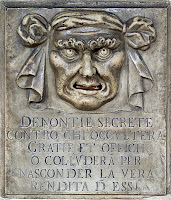Science maven Maggie Koerth-Baker, a few weeks ago, filed some very clever observations on longevity and the need for people to riddle out a formula or pattern for long, healthy lives--prefacing the dispatch with something to the effect, if a supercentenarian, whilst chain-smoking, eating chocolate, not exercizing, drinking red wine and turnip juice, jumped off a bridge from Okinawa to Andorra--would you do it too... No habit or diet is shared for those who reach extreme old age, though science is trying to fit it to a certain paradigm, but neither is it purely locked up in genetic predisposition.
I think maybe the common-quality lies in attitude, though I am sure it is still the exception or the exceptional that makes the rule. Petty anxieties telescoped beyond their power for harm or for good are surely counter-productive.
The Big Think, also a few weeks ago, featured a good lecture,
Fear is the Mind Killer (an homage to Frank Herbert's Dune-cycle), about this subject, which I thought triangulated well with prevailing healthy attitudes and stride. The lecture addresses the subtler names for different degrees of fear found in Hebrew. It's true how we give it a name and independent existence with our internal-dialogues, mental-vocalization, like "I'm afraid I'll be late," "I'm afraid I won't make a good impression," "What if I get sick," "What if the money runs out." These little-deaths always resolve themselves, but one does tend to weigh them as clear and imminent dangers. It is no mean feat to stop worrying and maybe a little bit naïve dismiss or ignore what's burgeoning, but at least, with the acknowledgement of these little killers, one might also pause to not only name it but also to assess (to
mantra-tize it) the damage it could do.





















